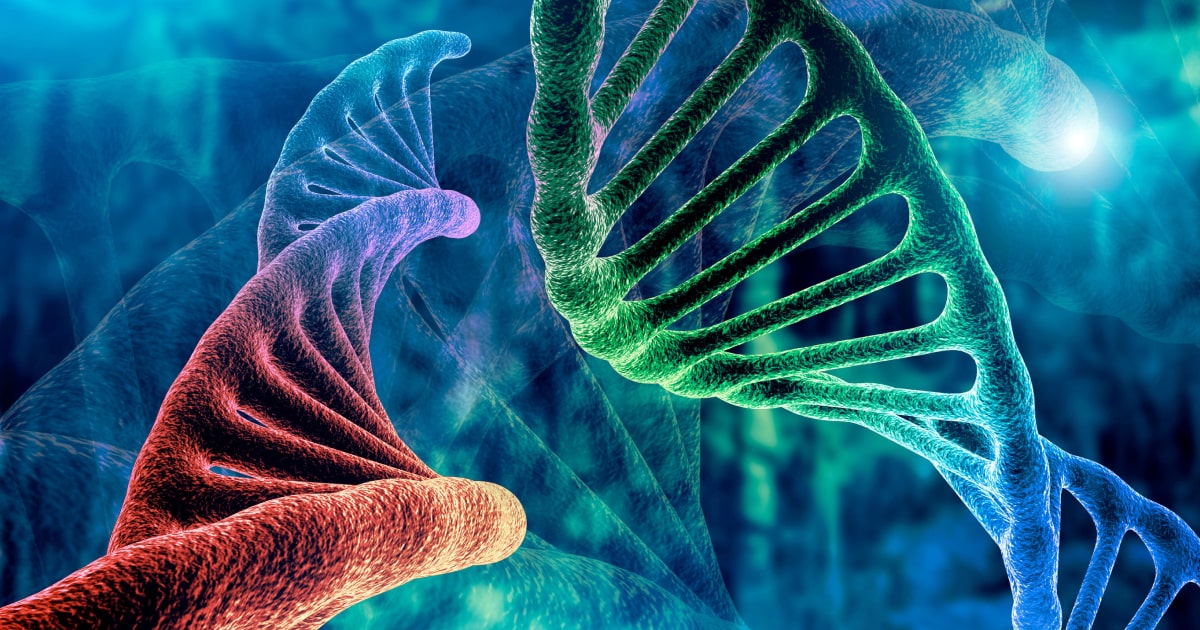
Expert Reviewed By: Dr. Brandon Colby MD
Hereditary Multiple Osteochondromatosis (HMO) is a rare genetic disorder that affects the skeletal system. It is characterized by the growth of multiple benign cartilage-capped bone tumors called osteochondromas. These tumors can cause pain, deformities, and restricted movement, significantly impacting the quality of life of affected individuals. In this article, we will explore the complexities of HMO, the role of genetic testing in its diagnosis, and how understanding the genetic basis of this disorder can help in its management and treatment.
Understanding Hereditary Multiple Osteochondromatosis
HMO is an autosomal dominant disorder, which means that an affected individual has a 50% chance of passing the condition to their offspring. The disorder is caused by mutations in either the EXT1 or EXT2 genes, which are responsible for the production of proteins involved in the formation and growth of bones and cartilage. The presence of osteochondromas in HMO patients can lead to various complications, such as nerve compression, blood vessel obstruction, and an increased risk of developing chondrosarcoma, a malignant bone cancer.
Diagnosing Hereditary Multiple Osteochondromatosis
The diagnosis of HMO is primarily based on clinical findings, such as the presence of multiple osteochondromas, and a family history of the disorder. Imaging studies, including X-rays, computed tomography (CT) scans, and magnetic resonance imaging (MRI), can help visualize the extent and location of the tumors. However, genetic testing plays a crucial role in confirming the diagnosis and identifying the specific gene mutation responsible for the disorder.
Genetic Testing for HMO
Genetic testing for HMO involves analyzing the DNA of the affected individual to identify mutations in the EXT1 or EXT2 genes. This can be done using various techniques, such as Sanger sequencing, next-generation sequencing, or multiplex ligation-dependent probe amplification (MLPA). The choice of the testing method depends on the availability of resources and the clinical presentation of the patient.
Benefits of Genetic Testing
There are several benefits to genetic testing for HMO, including:
- Confirmation of diagnosis: Genetic testing can help confirm the diagnosis of HMO in individuals with clinical symptoms and a family history of the disorder. This is particularly useful in cases where the clinical presentation is atypical or the imaging studies are inconclusive.
- Identification of carriers: Genetic testing can identify individuals who carry a mutation in the EXT1 or EXT2 genes but do not have any symptoms of the disorder. This information can be useful for family planning and genetic counseling.
- Prenatal and pre-implantation genetic diagnosis: Couples with a family history of HMO can opt for prenatal genetic testing or pre-implantation genetic diagnosis (PGD) to determine the genetic status of their offspring. This can help them make informed decisions about their reproductive choices.
Using Genetic Information for HMO Management and Treatment
Understanding the genetic basis of HMO can help in the development of targeted therapies and personalized treatment plans. For instance, research on the molecular mechanisms underlying the formation of osteochondromas has led to the identification of potential therapeutic targets, such as the heparan sulfate proteoglycans (HSPGs) and the hedgehog signaling pathway. Inhibitors of these pathways are currently being investigated as potential treatments for HMO.
Moreover, genetic testing can help identify individuals at risk of developing chondrosarcoma, allowing for early detection and intervention. Regular monitoring and follow-up of HMO patients, especially those with a known genetic mutation, can help in the timely identification and management of complications, such as nerve compression and blood vessel obstruction.
In conclusion, genetic testing plays a vital role in the diagnosis and management of Hereditary Multiple Osteochondromatosis. It not only helps confirm the diagnosis but also provides valuable information for family planning, genetic counseling, and the development of targeted therapies. As our understanding of the genetic basis of HMO continues to grow, so does the potential for improved treatment options and a better quality of life for affected individuals.
About The Expert Reviewer
Dr. Brandon Colby MD is a US physician specializing in the personalized prevention of disease through the use of genomic technologies. He’s an expert in genetic testing, genetic analysis, and precision medicine. Dr. Colby is also the Founder of and the author of Outsmart Your Genes.
Dr. Colby holds an MD from the Mount Sinai School of Medicine, an MBA from Stanford University’s Graduate School of Business, and a degree in Genetics with Honors from the University of Michigan. He is an Affiliate Specialist of the American College of Medical Genetics and Genomics (ACMG), an Associate of the American College of Preventive Medicine (ACPM), and a member of the National Society of Genetic Counselors (NSGC)